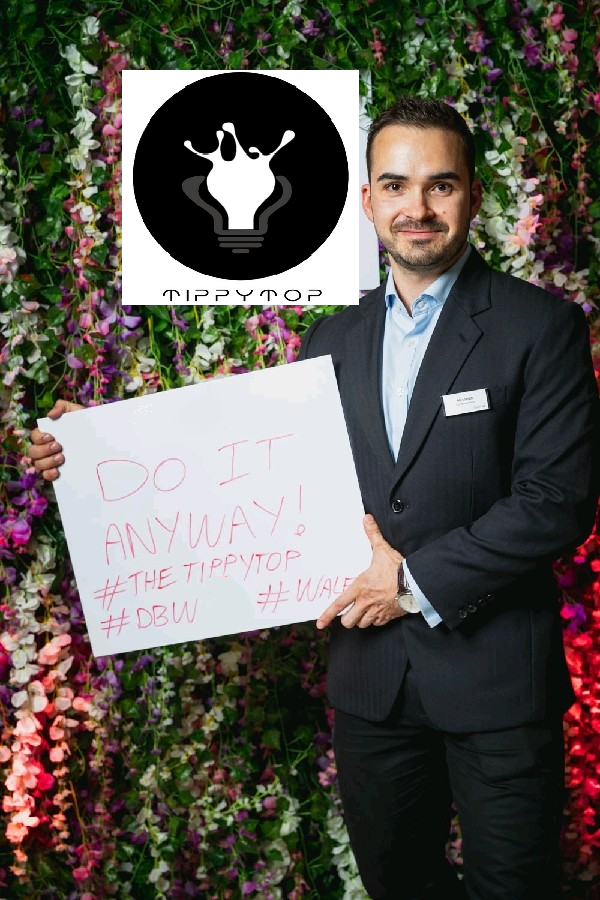
 There is loads of generic advice about interviewing out there. I consider these things the ‘hygiene factors’ that need to be in place at a minimum. I’m now taking you to the next level with gold-dust that you can sprinkle on your already excellent interview technique. It will take you from “we think you suit the role” to “we must have you!” Now to be clear, I’m not advocating being inauthentic. Quite the opposite really because the below are fairly self-selecting and if you can’t pull them off, you probably weren’t right for the role anyway.
0 Comments
 Forget Tesla, Space X and Hyperloop. I’m talking about something more exciting. I’m talking about the Cape Town start-up that managed to shake up the global F1 and leisure boating industry. In its life, Caudwell Marine received between $80m-$100m in funding. That’s well over one billion Rand. In South Africa, that goes a very long way so it might as well have been one billion US dollars. This was no ordinary start-up!  Most good company ideas are stolen. Success is all about timing and execution. How do I know this? Because I’ve spoken to countless wealthy entrepreneurs who were not ashamed to admit it. I might have also done it myself once before. It worked brilliantly except for the tiny yet pivotal fact that the product didn’t lend itself to repeat business... Case in point, before Facebook there was Ringo. It launched a full 8 months earlier, in June 2003. After only 3 months it had 200,000 users with a weekly growth rate of 10%.  We have all heard that some of the best businesses start in a restaurant with some rough notes scribbled on the back of a serviette. If that is the case, then why are countless people studying entrepreneurship and going back to [business] school to learn how to write business plans? Thinking around entrepreneurship has evolved. Historically there was belief that it was not possible to teach entrepreneurship. That has changed. Not only is it possible to teach, it has a positive correlation with success!  For anyone working in the corporate world, there’s a book I highly recommend by Albert Bernstein called Emotional Vampires: Dealing With People Who Drain You Dry. As it turns out that not everyone has your best interests at heart and you need to know how to identify these sociopaths in order to protect yourself, your mental health and your career. The book has helped me tremendously. In the start-up world, there are other types of vampires. This time they’re looking to get their fangs into your equity. Here’s some tips on how to ensure you keep the bloodstains off your shirt.  Fancy trying to catch a falling knife? There's probably no better analogy to describe distressed businesses. They are not for the feint at heart. I admire people who take on the challenge because ultimately they save jobs and help the economy grow. If you decide it's for you then please make sure it's not your first investment and make sure it's not your last dollar!  Private Equity has become an increasingly attractive asset class. Unfortunately due to its success, lots of capital has poured into the sector. More capital chasing the same number of opportunities has increased prices and reduced returns. Nonetheless, there are still some very good opportunities and many VC-backed businesses will exit to PE so its still a very exciting time to be investing.  Yes, we would all like to invest in the next Facebook, Snap, Instagram, but if presented with the business plan at the outset, would you have taken the plunge? I think VC is as much about gut feel as it is about rigorous investment criteria. In fact, many very successful VCs will tell you that they've turned down investments in some of the world’s greatest companies. Is this proof that VC investing is much as an art as a science?  With Angel investing, I think the main question you need to ask yourself is: "Do I have enough follow-on capital if their estimates are not quite right?" This list is by no means exhaustive and there are plenty of other factors that you should consider so this is a starting point for those looking to get into the industry.  There’s one sure-fire way to succeed with an MBA. Teach it instead of studying it. With University fees at an all-time high, there has been a staggering increase in the number of schools, of varying quality, providing MBAs. There’s now a whole industry getting rich off this once acclaimed degree. The ubiquity of MBA grads mean that the degree has been commoditised. Accordingly, here’s a stream of reasons why you’d probably be better off putting a deposit down on a house than pursuing an MBA:  Loads of mid-career people consider an MBA in an effort to differentiate themselves and break through the proverbial glass ceiling at work, whether it be real or perceived. Committing to an MBA is no joke especially in terms of finances and time. There’s a reason they call it the ‘divorce course’. That being said, there’s an overwhelming number of reasons why it’s a good idea.  The Problem You started your own business because you have a great talent for providing a particular service. You make a decent living, but you never feel as if you are getting ahead. Why is your experience not being reflected in your bank balance? The Solution In the business world, they often talk about ‘levers’ that you can pull to improve profitability. For most service providers, there are 3 key levers:  I feel very fortunate to have experienced a live talk from the motivational speaker, Rob Moore. Rob’s speech stands as one of the most inspiring and educational speeches I have heard to date and I suspect will continue to do so for a long time. As Rob taught me, when you share your knowledge with others, magical things happen, so here you go. P.S. It turns out, there is a formula for success…  In the blog post on Finding Business Ideas we said that buying a business is often the quickest and easiest way to become an entrepreneur. Well, like buying a house, you don’t want to pay for fancy fixtures or a fresh lick of paint. You want the cheapest house in the best area. This typically means you’ll buy something beaten up that needs loads of TLC. The same goes for businesses and so being able to execute a turnaround is a key skill.  Start-ups are inherently vulnerable because they don't have cushy income stream propping them up or a stockpile of cash that they can dip into if things go awry. Therefore they must ensure that they are successful 90% of the time and that failures are hard and fast. The odds are clearly against entrepreneurs so this post is dedicated to helping you avoid the most common pitfalls so that you have a fighting chance of success. 
“OK thanks for the advice on motivating my non-existent employees and optimising my theoretical product mix, but can someone please explain to me how I actually start a business!?” I have found that despite the overabundance of literature on entrepreneurship, most of it doesn’t give you much practical advice on starting a business.
In fact, the first time I launched my start-up, I had no clue what I was doing and what a learning curve it was! The process has since been demystified, so I thought I’d share...  Right, you’ve stress-tested your business idea, convinced your co-founders about this incredible new plan and drawn up some basic legal agreements. At some stage you’ll need to start thinking about expanding the team. To be clear, we are dealing with expanding your team, not plugging the deficiencies of the founders. If you find yourself in the situation where you don’t have a co-founder to do the marketing in a consumer-focused business then... |
Author
Alexander Leigh Categories
All
|
Disclaimer: Views expressed here are solely in my private capacity and do not in any way represent the views of organisations I might be affiliated or associated with.
Copyright 2022 The Tippy Top ©
Copyright 2022 The Tippy Top ©




 RSS Feed
RSS Feed